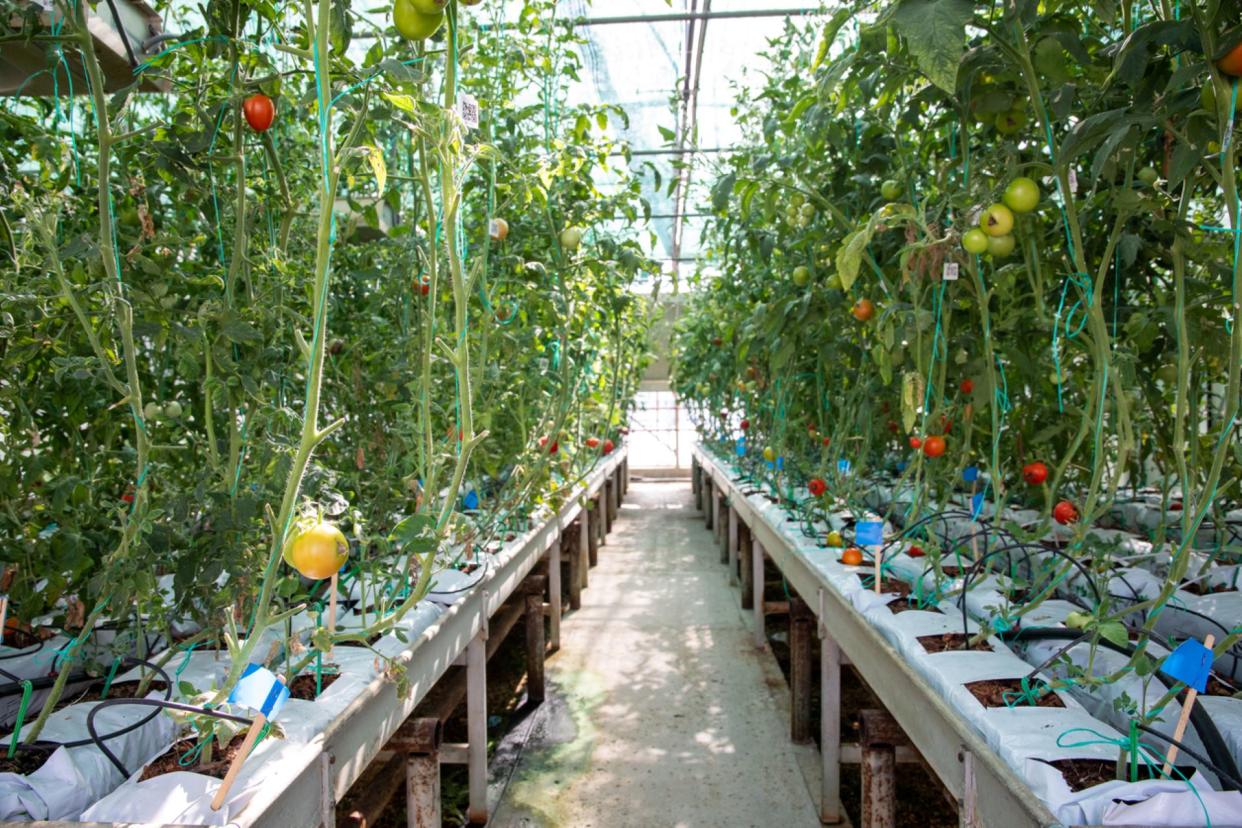Researchers make crucial discovery about drought-resistant plants: 'A grand challenge for agricultural production'

Scientists are making breakthroughs in agricultural research that could change how (and where) we grow our food.
At University Roma Tre, researchers experimented with the effects of thermospermine (T-Spm) on tomato stress tolerance, or their ability to withstand drought conditions. Natural Science News reported that these researchers genetically modified tomatoes to create mutant tomato plants that could withstand more significant droughts than their unmodified counterparts.
These mutant tomatoes (which aren't as scary as they might sound) showed better efficiency in their internal water transport systems, which means they retain water better under drought conditions and are theoretically able to survive harsher weather.
Other scientists have used the same genetic modification technology, known as CRISPR, to create other durable plants. For example, Roger Thilmony of the ARS Crop Improvement and Genetics Research team in Albany, California, has developed drought-tolerant wheat using the genetic editing tool.
"Global climate change is a grand challenge for agricultural production," Thilmony said in an article on USDA's Tellus page. "Drought is one of the primary stresses that limit crop productivity and cause economic losses. The creation of drought stress-tolerant crops, like wheat, is important to mitigate these problems and enable good agricultural yields, despite environmental challenges."
Thilmony's wheat plants stayed green longer under drought conditions than their ordinary counterparts, which signifies potential drought tolerance.
Watch now: Local hero single-handedly repopulates endangered butterfly species
"Gene editing can be applied to a wide array of crops, and it is possible that editing can be used in other plants to make them more drought stress-tolerant," Thilmony said.
While it might seem ideal to avoid genetically modified foods, the reality is that increasing global temperatures, droughts, wildfires, and weather volatility all combine to put the world in a situation where it simply makes sense to create ways to keep the world running.
Developing drought-tolerant agriculture is a vital step toward a more secure future, as droughts and other extreme weather events are becoming more common due to the dangerous overheating of our planet.
As the climate shifts, we must adapt our systems and lifestyles to the new reality (and create new ones that are better suited to our new conditions). Hardy food sources are among the most important resources in a warming world. Scientists and farmers are also working to proliferate heat-resistant coffee, drought-tolerant chickpeas, and disease-immune rice strains.
Join our free newsletter for weekly updates on the coolest innovations improving our lives and saving our planet.

